06 August 2019
Austempered Ductile Iron Production Technology From Base Material Produced By Ferro-Casting Industry In Indonesia
Rianti Dewi Wulansari Sulamet Ariobimo, 2003 University of Queensland Abstract The quality of... Read More
The Australia Awards are prestigious, transformational scholarships and short courses offered to emerging leaders for study, research and professional development in Australia

30 Apr 2016
 From Institute of Teacher Training and Education (IKIP) to Makassar State University (UNM): Power Struggles in the Field of Teacher Education in Indonesia
From Institute of Teacher Training and Education (IKIP) to Makassar State University (UNM): Power Struggles in the Field of Teacher Education in Indonesia
Abstract
This dissertation investigates the impact of the conversion of IKIP Ujung Pandang into Universitas Negeri Makassar (UNM), particularly in terms of the teacher education program. The present paper assumes the understanding that education is a principal institution in advanced and developing societies, and is implicated in diverse aspects of social life.
Education in Indonesia is undergoing significant reform due to the forces of national development. This study considers the changing circumstances of Universitas Negeri Makassar (UNM) as a university in conversion from a teacher education institute. A particular focus is on the implications of the status shift to a university-based teacher education program. The principal matters of concern include changes to pedagogy, curriculum, and broader cultural legitimacy with regards to a growing credentialism in Indonesia.
Bourdieu’s theoretical concept of the university as a cultural field frames the study as a space where power is exercised through the capital held by different agents. A Foucauldian perspective, which adopts knowledge/power and truth in analysing power struggles between different fields, disciplines, and institutions, is used to explore how the university members experience the status change. This perspective is also used to examine how the conversion shapes the teacher education at the university. The historical influences of teacher education in Indonesia and the changing policy regime establish the context within which these changes are analysed.
By using a post-structuralist lens, this study explores how IKIP Ujung Pandang has become subject to change. It examines the discourse of the university idea from the perspective of both policy and teacher educators, as well as how the discourse shapes the existing curriculum and practice of teacher education at UNM following the conversion. It includes the disposition of the teacher education institute in the context of higher education in Indonesia. Moreover, the disposition of teacher educators is examined within the discourse of university lecturers – how they are positioned and how they position themselves as both teacher educators and university lecturers. The discourse is analysed by locating teacher education as a field where knowledge is shaped through knowledge/power and discourse.
This study’s findings suggest that the discourse of university-based teacher education arises when becoming a university means strengthening disciplinary knowledge and improving subject matter knowledge. The features of a university proposed by Indonesia’s policy of higher education have strongly influenced the post-conversion development of the teacher education program at UNM. These features translate into the field and shape not only the teacher education curriculum and practice, but also the identity of the teacher educators.
Keywords: teacher education, power, knowledge, capital, Makassar, Indonesia, Foucault, Bourdieu, governmentality, educational reform
Share this article on:
 Related Article
Related ArticleThis website uses cookies to improve your website experience. We may also use cookies to analyse website data so that we can improve our online services. To find out more visit our privacy policy.

